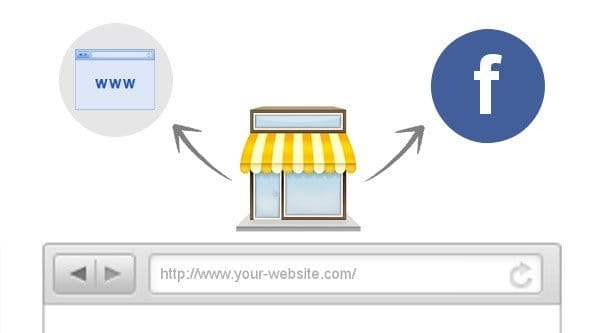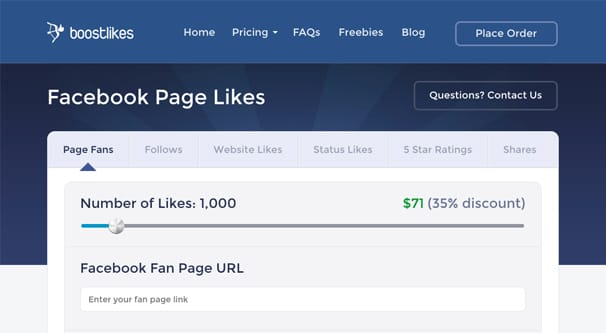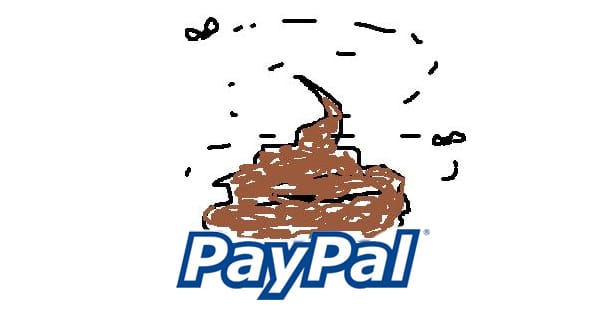 Written by ContentPowered.com
Written by ContentPowered.com
Have you ever had a business idea, but then thought “but wait, someone else probably already does that.”? Have you ever gone out to look and seen exactly which businesses already do that, and then grown disheartened that seemingly every idea is already taken?
What if I told you there was a way to still be successful in this arena?
The solution lies in remembering that not all businesses are necessarily competitors. If you have a business idea and find out that someone else already does it, that’s not an existing competitor you have to beat; that’s a source of value you can share.
Enter the concept of reselling. Reselling is, well, exactly what it sounds like. You find a business providing some useful service and you go “hey, what if I sold your service for you?”
Reselling is the service equivalent to dropshipping. You create your own branded business selling something, but your supplier – the provider of the product or service – is their own brand. All you’re doing is putting your own label and premium pricing on the service, and taking your profit cut out of the total price.
Reselling has a lot of advantages. Primary among them is the fact that you don’t have to develop the service yourself. Why would you want to develop a social media dashboard if you can just rebrand someone else’s for a fee?
An Example
Let’s put aside the “social media service” aspect of this post and talk simply about reselling a service. In this case, let’s think about web hosting. Web hosting is a service you can easily resell, and in fact is commonly resold all around the internet. You might be surprised at just how many of the smaller web hosts you find are actually just reselling a big name like WebHosting.net.
Reselling something like web hosting has benefits on both sides of the coin. WebHosting.net might have a broad overview of their services, selling web hosting packages in as broad terms as possible. They want to catch the low hanging fruit; the people who know they need web hosting, don’t need anything special out of it, and can be convinced to buy services relatively easily.
However, for a broad-spectrum company like that, targeting niche users can be expensive and brings diminishing returns. If they debut a “web package for food bloggers” they might get an influx of food bloggers, but their marketing budget goes up and the effort spent maintaining this “package” is added on to their original workload.
Now what if you come along and say “hey, I have a site selling services to food bloggers, mind if I resell your services?” They’ll jump at the chance. They have a package or set of packages you can offer, that are no different from their normal offerings, but can be given a unique spin by your marketing. You put out all the work for the marketing, pay for ads, and get your existing customers to express interest. You sell the service and take a cut, and the rest of the cash goes to the web host. Meanwhile, the actual service is provided by the web host; you’re not responsible for fulfillment, for support, or for anything more than being a middleman.
Having a selection of resellers allows a wholesaler to focus on producing their product and marketing to a broad audience, while still receiving the benefit of niche targeted sales of their products. The only sacrifice they have to make is to their profits, since they’re paying out to you for each sale.
Deciding on Services
If you’re interested in reselling social media services, the first thing you need to do is determine what those services will be. You will be starting from one of two positions. Either you already have an audience, or you don’t.
If you already have an audience, what you need to do is decide what services your audience is most likely to want. If you’re a site catering to newbie bloggers, for example, your users might want a basic social media dashboard, some analytics, or some automation. If you’re a site with an audience of people who already have those things, you might want to sell some deeper, more advanced tools.
If you don’t already have an audience, you have to gauge interest in the service you want to resell and figure out an angle. You can’t just resell it as it is, you need a spin, a unique marketing take on it that you can leverage. If you don’t bring something to the table, you’re not going to be able to make a reseller deal.
Vetting a Supplier
Once you have an idea of the service you want to resell, you need to find a supplier. For example, 99Social is a company that offers Facebook and Twitter management, year round, for $99. You can become a reseller for the same $99 price, but in doing so, you get access to their posting platform and their reselling tools. You’re free to sell their tools – providing your own use of those tools – for whatever price you want. They are essentially selling a platform you can use to become a Facebook and Twitter management agency.
When you want to find a company to resell, you need to put in some work vetting whether or not the company is going to be worthwhile to resell. Some companies will be willing to let you resell, but they’ll have restrictions that make it less than worthwhile. Other companies won’t be willing to have their products or services resold at all.
Here are some things you can check out to see if the company is worth working with.
- Do they accept resellers at all? As I said, some companies simply don’t want anyone reselling their services. Now, not every service provider who is willing to resell will have an actual reseller page. Often times you will have to shoot their support an email and work your way up the chain until you get to a manager capable of telling you yes or no. If you’re interested in a company, do a site search for “reseller program” or some variation on the phrase, then check their FAQ and see if they mention anything. If they don’t explicitly say they won’t work with resellers, send them an email and ask.
- Do they provide a whitelabel version of their service to maintain your branding? Good resellers aren’t leaving branding from a different company on their services, just like good dropshippers don’t make it clear they’re a middleman. After all, if you’re reselling the services of company X and the customer can clearly see that, what’s to stop them from going directly to company X in the future? Dropshippers at least have the protection of working directly with wholesalers who won’t sell in individual or small quantities. Service providers don’t typically have that luxury.
- Is the service they provide worth the price you would be paying to resell it? 99Social gives you their platform for $99, but if you can’t resell the service for more than $99, you’re just breaking even. If you get a whole platform for one price and can resell the platform to many customers, that’s great. If you have to sell individual packages, you need the leeway to make a profit.
- Do they restrict your possible pricing? Some resellers don’t want to see their services sold at a loss or sold for an extremely high price. Even if it’s whitelabel, they still don’t want to have the potential reputation hit if it’s discovered. Others won’t put a cap on your pricing and allow you to sell for what you feel works best. Some simply don’t care so long as they’re making money.
- Do they have worthwhile support in case of an issue? There are two issues with support; availability and utility. Availability is important; if you need support as a reseller or if one of your customers needs support, the service provider needs to be able to actually provide that support. Utility is more practical; is the support worthwhile? Sometimes you find that “support” is little more than links to an internal wiki, a poorly paid Indian customer service rep, and a lot of “sorry I don’t know what you mean.”
- Do they offer any discounts or added benefits to resellers? This is often common with the businesses that don’t let you exceed their own pricing by much. They know you need to have some added value, so they offer other benefits or a discount on purchasing their platform for reseller purposes. It’s up to you to balance whether they’re useful or not.
- Do they accept the payment methods you would want to accept? If you want to deal in PayPal and Stripe, while the company itself only deals with credit cards and bank transfers, you might have an issue.
- What country are they based in? This can make a different in terms of support hours, pricing, and language barriers. It does you no good to provide a service to Americans if the service is in German and none of them can understand it.
- Do their services work with or conflict with any existing services you provide or resell? Just be aware of potential synergies or conflicts with what you’re already doing, if you’re doing anything.
If the answer to any of these questions leads you to wonder whether or not the company would work out after all, you can remove them from consideration, particularly if you’re just starting out with reselling. Experienced resellers can make just about anything work if they try hard enough, but a lot of times the effort isn’t worth the reward.
Managing Payments
Managing payments is a two-part issue. First, you need to figure out what payment methods you can accept. Second, you need to forward payments on to your service provider through a method they will accept.
This is noteworthy with social media reselling primarily because of PayPal and Stripe. These online payment processors seem like they would be idea, but the fact of the matter is, they’re very much not. PayPal, Stripe, and most other similar services actually don’t even allow social media services on their system. You can run one for a while, but they’re an industry notoriously fraught with issues. Copyright and trademark violations abound. Scams and fake payment methods, stolen cards; these issues are everywhere. The high volume of issues means that sooner or later, the payment processor is going to crack down on you.
This is also an issue if you want to accept payment through a cryptocurrency like Bitcoin. Most actual service providers aren’t going to accept crypto directly, which means you need to handle converting from BTC to USD, which means eating the transaction fees and wait times yourself.
Your site generally needs to be able to accept payment through credit card or bank transfer of some kind, which means working with a payment processor like Authorize.net or NMI.
Automating Throughput
The final concern you have is automation. What can you do to make your job easier as a reseller? Does the service provider have an API you can use to send data to them when it happens, or do you need to compile an orders document to send each day? Ideally, you will be able to automate as much of the whole plan as possible. That way you can keep your income from reselling as passive as possible. You only need to update when you have special deals you want to offer, when the service provider gives you additional features, or when you want to keep your blog up to date.
Reselling a service, particularly a social media service, can be tricky. You have a lot of concerns to keep in mind and a lot of potential issues to work around. Once you have it set up, though, you can be good to go for years.




Perfect explanation thanks for sharing great info